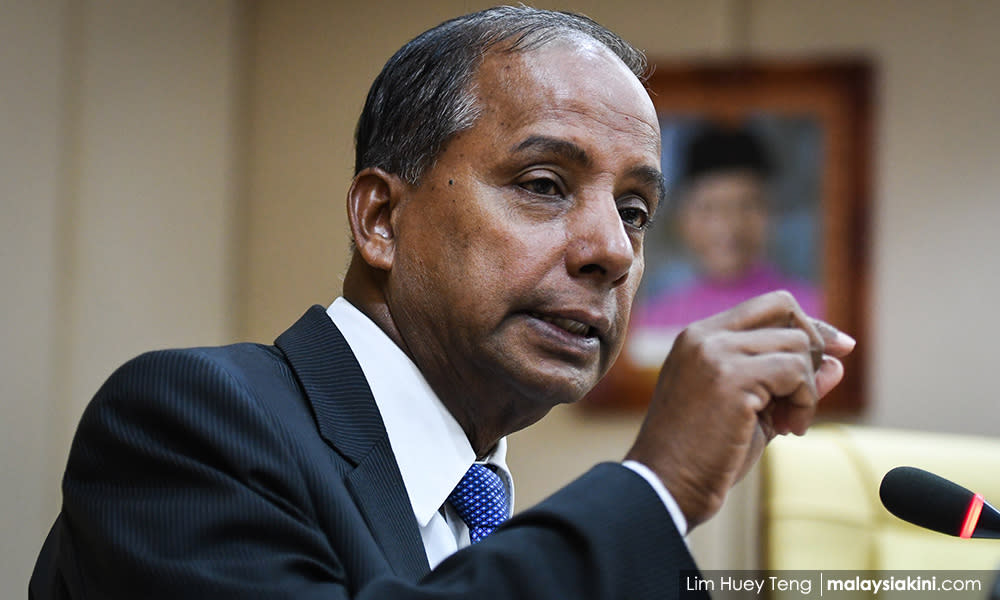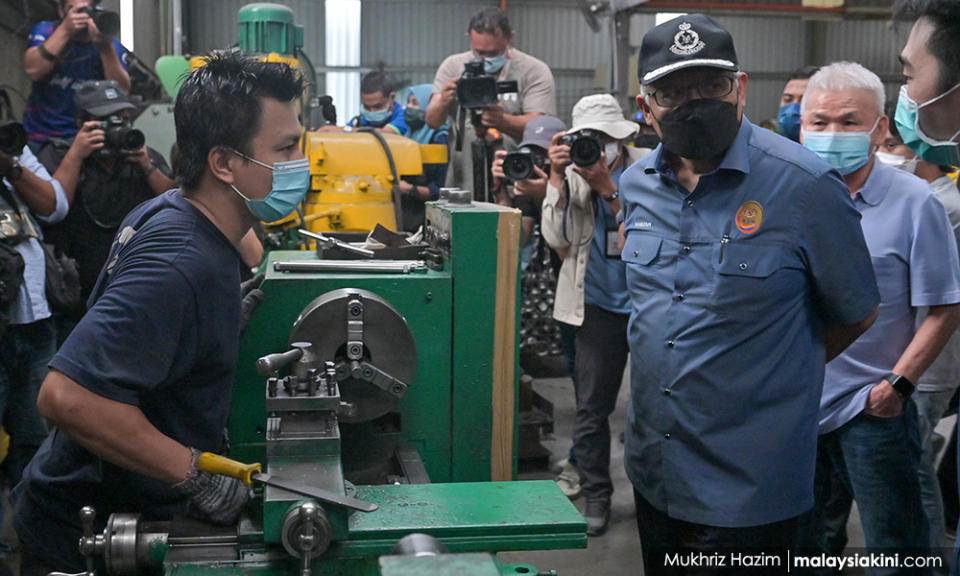Kula: PM must order relevant parties to attend Indonesian workers MOU talks

Former human resources minister M Kulasegaran has called on Prime Minister Ismail Sabri Yaakob to compel the Home Ministry to the negotiation table with Indonesia to finalise the memorandum of understanding (MOU) between the two countries on the recruitment and placement of domestic workers.
The planned inking of the MOU on Feb 7 and 8 in Bali has been postponed to an unspecified date and it is also holding up the recruitment of Indonesian workers into other sectors as the country had announced a temporary freeze last December on its labour migration into Malaysia pending the signing of a fresh MOU.
Yesterday, the Indonesian Ambassador to Malaysia Hermono (who goes by a single name) told Malaysiakini that the trust of implementation of the MOU was low, especially because the Malaysian Immigration Department, which holds a principal role in its implementation, was absent in the negotiation meetings.
Hermono had also explained that key features in the MOU, including the application of the One Channel System (OCS), had been agreed upon in principle.
However, the ambassador said the details in the integration of the two online worker management applications – Indonesia’s Siapkerja and Malaysia’s Foreign Workers Centralised Management System (FWCMS) – required the active participation of the Immigration Department, which operates the latter system.
Speaking to Malaysiakini, Kulasegaran said that the Immigration Department could be avoiding accountability on the implementation of the clauses being discussed.
“One of the main clauses in the agreement calls for the execution of the OCS, which requires the discontinuation of the Maid Online System (SMO) currently operated by the Immigration Department,” he explained.

Old system prone to abuse
Reiterating Indonesia’s earlier contention with the SMO, Kulasegaran said it could lead to gross abuse as workers could travel into Malaysia as tourists first and then convert their pass to one that would allow them to work in Malaysia as domestic workers.
“With the SMO, there was no control as to who was qualified to come to Malaysia as domestic workers or even the number needed.
“The SMO also encouraged the mushrooming of recruitment agencies that were not registered with the government and which, therefore, were difficult to be held accountable for any form of misconduct and fraudulent activities.
“When I was the minister, we had commenced efforts to clean up this process but everything fell through when the federal administration by Pakatan Harapan fell in February 2020,” he said, adding that he too had faced the Immigration Department’s disinclination to participate in MOU talks.
Kulasegaran said the MOU was a very important government-to-government (G2G) tool to ensure the entire process of recruitment and placement of domestic workers from abroad was properly regulated to minimise abuse of any parties.
He advised that the Home Ministry should hand over the responsibility of managing migrant labour to the Human Resources Ministry if it was finding it hard to implement the MOU.
The Ipoh Barat MP reminded the government of a special report by an Independent Committee on Foreign Worker Management that had also recommended that the Human Resources Ministry be the single authority for foreign worker management.
He said the committee, led by former Court of Appeal judge Mohd Hishamudin Yunus and comprising representatives from the Human Resources Ministry, Home Ministry and experts from the labour industry, had produced 40 recommendations.
The committee also found that among the 64 countries surveyed, the majority of the governments functioned with a single unified system for the regulation of domestic labour and labour migration.
“And among the 64 countries, Malaysia was among the few to have placed the responsibility of human resources management under two ministries,” Kulasegaran added.


